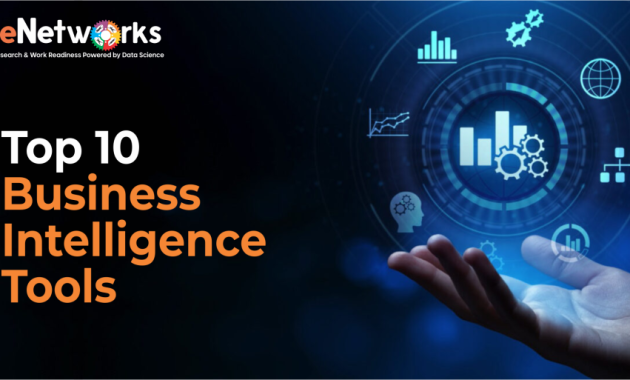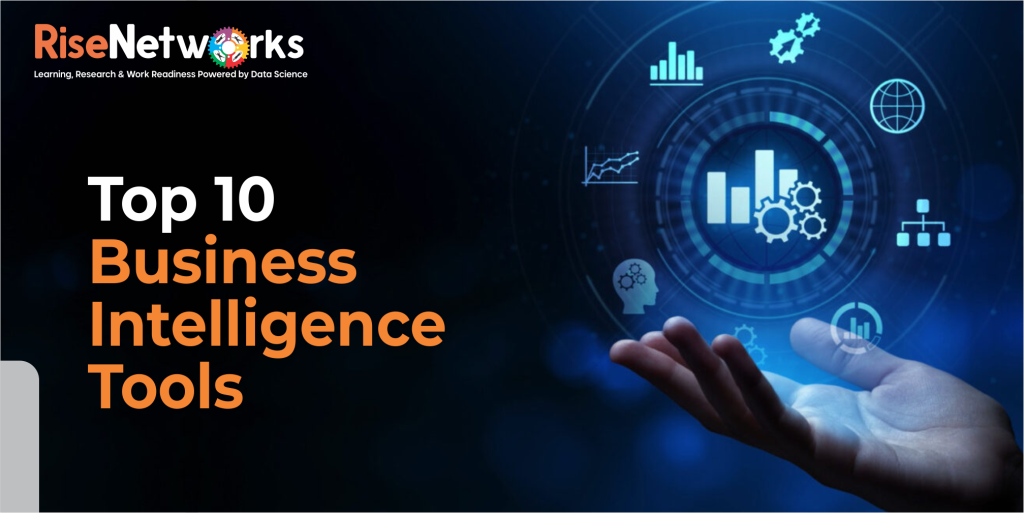
Experts Reveal 10 Business Intelligence Tools To Boost Decision Making
In today’s data-driven landscape, businesses of all sizes face an unprecedented flood of information. Making sense of this deluge and extracting actionable insights is critical for success. This is where business intelligence (BI) tools come into play. They transform raw data into understandable formats, empowering decision-makers to make informed choices. This article delves into ten leading business intelligence tools, as revealed by industry experts, and explores how they can significantly boost your decision-making processes.
The power of data is undeniable. However, the ability to interpret and utilize this data effectively is the key to competitive advantage. Business intelligence tools provide the necessary framework to analyze data, identify trends, and predict future outcomes. By leveraging these tools, organizations can optimize operations, improve customer experiences, and ultimately drive revenue growth. The following list, curated from expert opinions, highlights some of the best BI tools available today.
Understanding the Role of Business Intelligence
Before diving into specific tools, it’s essential to understand the core function of business intelligence. BI encompasses the strategies and technologies used to analyze business data. The goal is to provide historical, current, and predictive views of business operations. This allows for data-driven decision-making, fostering agility and responsiveness.
Key components of a robust BI strategy include data warehousing, data mining, online analytical processing (OLAP), and reporting. Effective BI solutions integrate these components seamlessly. This provides a comprehensive view of the business. This holistic approach is crucial for understanding complex business challenges. It enables the identification of opportunities and risks.
Top Business Intelligence Tools: A Deep Dive
The following tools are recommended by experts. They represent a range of capabilities and pricing structures. This ensures there’s a solution for various business needs. Each tool’s strengths and weaknesses are considered. The aim is to provide a balanced overview to help you choose the right fit.
Tableau
Tableau is a market leader in data visualization and business intelligence. It is known for its user-friendly interface and powerful analytical capabilities. Tableau allows users to create interactive dashboards and reports. These reports can be shared easily across teams. Experts praise Tableau’s ability to handle complex datasets. Tableau also provides advanced features like data blending and predictive analytics.
Microsoft Power BI
Microsoft Power BI is a comprehensive BI solution. It integrates seamlessly with other Microsoft products. Power BI offers a wide range of features, including data modeling, data preparation, and interactive visualizations. Its affordability and ease of use make it a popular choice for businesses of all sizes. Power BI’s strong community support and frequent updates are also key advantages.
Qlik Sense
Qlik Sense is another prominent player in the BI space. It is known for its associative data model and self-service analytics capabilities. Qlik Sense allows users to explore data freely, uncovering hidden insights. Its data governance features ensure data accuracy and security. Qlik Sense is designed to empower business users with data-driven insights.
Looker (Google Cloud)
Looker, now part of Google Cloud, is a modern BI platform that focuses on data exploration and governance. It provides a centralized data model that ensures consistency and accuracy across reports. Looker’s ability to integrate with various data sources and its robust data modeling capabilities make it a powerful tool for complex data analysis. Looker is designed for organizations with advanced data needs.
Sisense
Sisense is a BI platform that specializes in embedded analytics. It allows businesses to integrate analytics directly into their applications and workflows. Sisense’s in-memory processing capabilities ensure fast performance. It also offers a user-friendly interface and a wide range of visualization options. Sisense is ideal for organizations that want to embed analytics into their customer-facing applications.
MicroStrategy
MicroStrategy is an enterprise-grade BI platform with a strong focus on scalability and security. It offers a comprehensive suite of features, including advanced analytics, mobile BI, and data governance. MicroStrategy is well-suited for large organizations with complex data requirements. Its robust security features ensure data privacy and compliance.
ThoughtSpot
ThoughtSpot is a search-driven analytics platform that allows users to ask questions in plain language and get instant answers. It leverages artificial intelligence (AI) and machine learning (ML) to automate data analysis. ThoughtSpot’s ease of use and powerful search capabilities make it an excellent choice for business users. The platform empowers users to explore data without relying on technical expertise.
Domo
Domo is a cloud-based BI platform that offers a unified view of business data. It provides real-time dashboards and alerts. Domo is designed to be user-friendly. It enables collaboration across teams. Domo’s mobile accessibility and ease of integration are key advantages. The platform helps organizations make data-driven decisions from anywhere.
Zoho Analytics
Zoho Analytics is a self-service BI and analytics platform. It is designed for small and medium-sized businesses (SMBs). It offers an intuitive interface and affordable pricing. Zoho Analytics provides a range of features, including data blending, data preparation, and interactive dashboards. It integrates seamlessly with other Zoho applications. This makes it a convenient option for Zoho users.
SAS Business Intelligence
SAS Business Intelligence is a comprehensive BI platform. It is known for its advanced analytical capabilities and data governance features. SAS BI is well-suited for organizations with complex data needs. It provides a wide range of statistical analysis and predictive modeling tools. SAS BI is a robust choice for data-intensive industries.
Choosing the Right Tool for Your Business
Selecting the right business intelligence tool depends on your specific needs and requirements. Consider factors such as data volume, user skill levels, budget, and integration needs. Evaluate each tool based on its features, ease of use, scalability, and support. A pilot project can help you test the tool. It ensures it meets your specific requirements.
Remember that the best business intelligence tool is the one that empowers your team to make data-driven decisions effectively. Focus on the outcomes. The tools are a means to achieve a goal: improved decision-making. Investing in the right BI solution is an investment in your business’s future. It leads to better outcomes.
The Future of Business Intelligence
The field of business intelligence is constantly evolving. Emerging trends include the increasing use of AI and ML. These technologies are automating data analysis. They also provide more insightful predictions. Cloud-based BI solutions are becoming increasingly popular. They offer greater flexibility and scalability. The focus is shifting toward self-service analytics. This empowers business users to explore data independently.
As businesses continue to generate more data, the need for effective business intelligence tools will only grow. By leveraging these tools, organizations can unlock the power of their data. This can lead to better decisions. Better decisions result in improved business outcomes. The ten tools mentioned provide a solid starting point. They help businesses navigate this exciting landscape. They boost decision-making in a complex world.
The choice of business intelligence tools directly impacts decision-making. The right tools provide crucial advantages. They can significantly improve your business.
Business intelligence tools are essential for boosting decision-making. Experts have revealed valuable insights.
The application of business intelligence tools is essential. It provides a competitive edge. It is a key factor.
Business intelligence tools provide a competitive advantage. They enhance decision-making processes.
These business intelligence tools can transform your business. They boost decision-making capabilities. They empower your team.
Investing in business intelligence tools is a strategic move. It is a critical factor. It improves decision-making.
Remember to choose the right business intelligence tools. Your business can thrive. It can enhance decision-making.
These business intelligence tools are powerful. They are crucial for enhanced decision-making. They can improve your business.
The future of business intelligence is bright. These business intelligence tools offer great potential. They boost decision-making.
These are the top business intelligence tools. They are helpful for boosting decision-making.
[See also: Related Article Titles]

